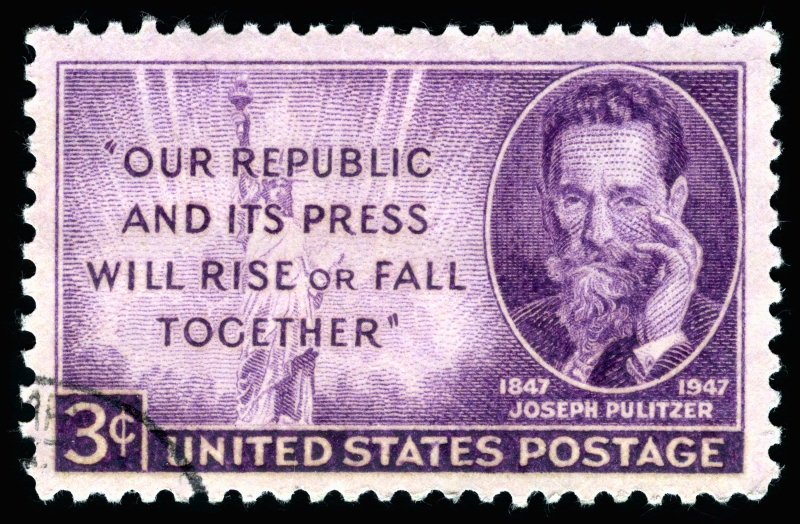By Chris Finnie
At the Santa Cruz Mountain Bulletin, we’re hardly in the same league with the people the White House assails as purveyors of “fake news.” But there’s a reason the authors of the United States Constitution provided protection to only one occupation: the press.
The First Amendment, ratified with nine others commonly called the Bill of Rights, in 1791, is titled “Freedom of Religion, Press, Expression.” It says that Congress may not pass laws “abridging the freedom of speech, or of the press.” There are two reasons the press received special protection in the Constitution: The first is the need for an informed electorate. In this infant democracy, the founders felt it important that the citizens who would vote on its fate be well informed. Thomas Jefferson expressed it this way, “No experiment can be more interesting than that we are now trying, and which we trust will end in establishing the fact, that man may begoverned by reason and truth. Our first object should therefore be, to leave open to him all the avenues to truth. The most effectual hitherto found, is thefreedom of the press. It is, therefore,the first shut up by those who fear the investigation of their actions. “ James Madison articulated the prevailing belief when he said, “Knowledge willforever govern ignorance; and a people who mean to be their own governors must arm themselves with the power which knowledge gives.” The second is to act as a check on government. They were aware that human nature cannot always be trusted, and thus set up several mechanisms to remove elected officials who actedcounter to the best interests of the people they were supposed to serve. But they also expected the press to serve this purposeand were aware of the resentment it might engender. John Adams summed it up well by saying, “As unbalanced parties of every description can never tolerate a free inquiry of any kind, when employed against themselves, the license, and even the most temperate freedom of the press, soon excite resentment and revenge.”
Changing Attitudes
Even though many elected officials chafed at the scrutiny of the press, they still recognized the value. Franklin D. Roosevelt railed against some of the things the press said, but still opined, “Freedom of conscience, of education, of speech, of assembly are among the very fundamentals of democracy and all of them would be nullified should freedom of the press ever be successfully challenged.” Calvin Coolidge observed that, “Wherever despotism abounds, the sources of public information are the first to be brought under its control.” But this attitude is changing. The World Press Freedom Index, compiled by Reporters Without Borders, has been published annually since 2002, measuring media freedom in 180 countries. This year’s report says, “More and more democratically elected leaders no longer see the media as part of democracy’s essential underpinning, but as an adversary to which they openly display their aversion.”A report by Freedom House also sounded an alarm. “As recently as five years ago, global pressure on the media did not appear to affect the United States or the established democracies of Europe in any significant way. Today, populist leaders constitute a major threat to free expression in these open societies.” Referring to the press as an “enemy of the people” is not new. Robespierre, Goebbels, Lenin, Stalin, and Mao all used one. Many of them also shut down media outlets, imprisoned journalists, and even murdered them. Today, it’s happening in Russia, Egypt, China, Turkey, and other countries. But, while politicians who do not like the glare of a free press may denigrate it, and even try to suppress it, a free press is not the enemy of the people but a necessary component of a healthy democracy. You can see the World Press Freedom Index at: https://rsf.org/en/rsf-index-2018-hatred-journalism-threatens-democracies
View the full Freedom House report at: https://freedomhouse.org/report/freedom-world/freedom-world-2018

